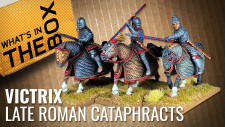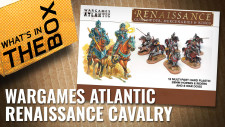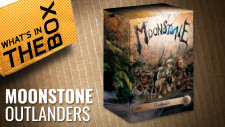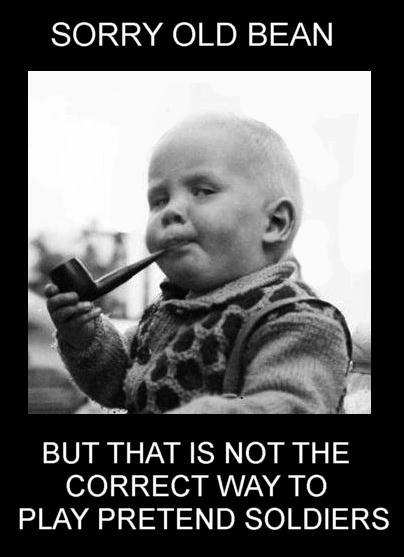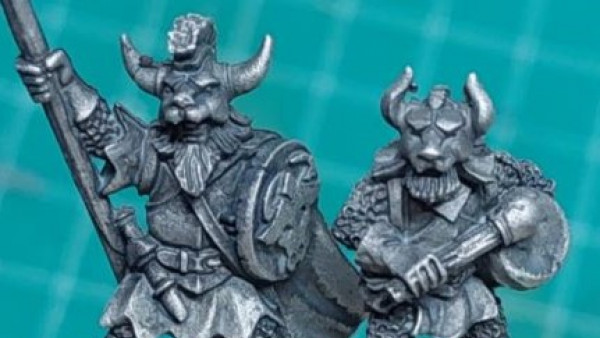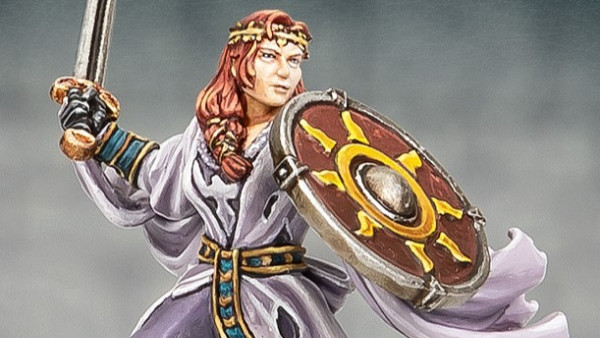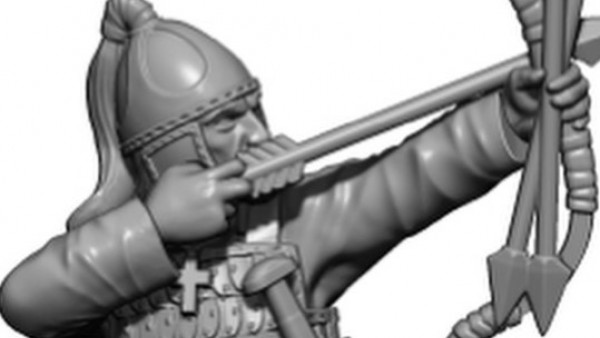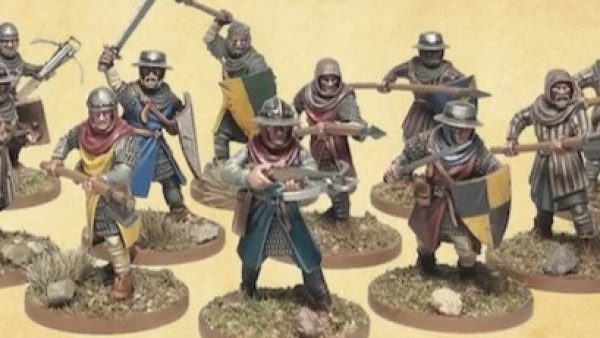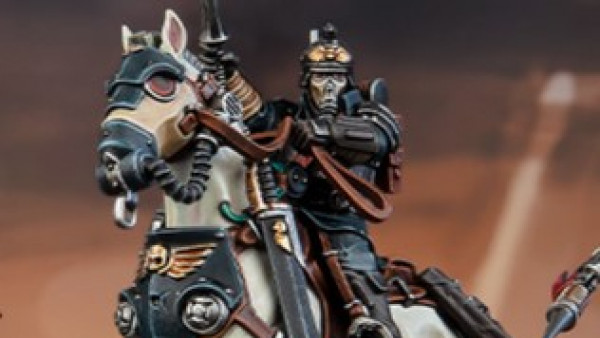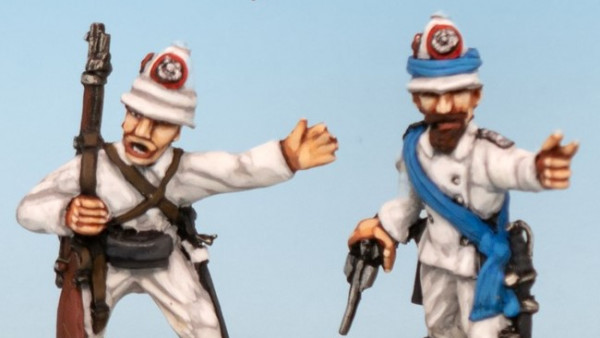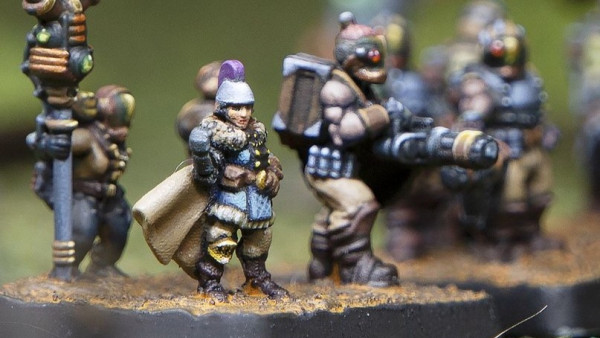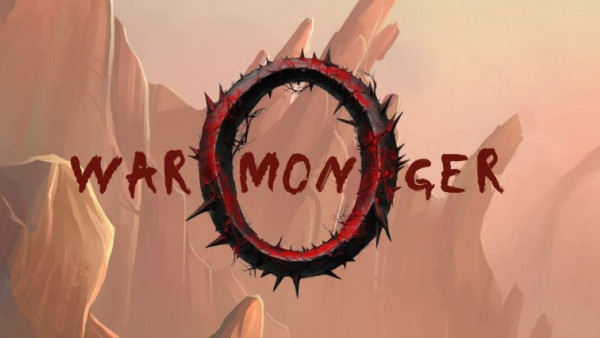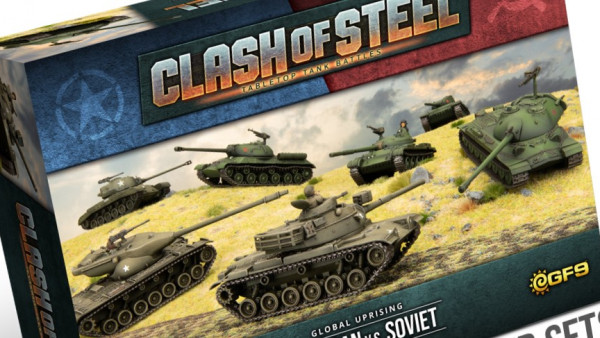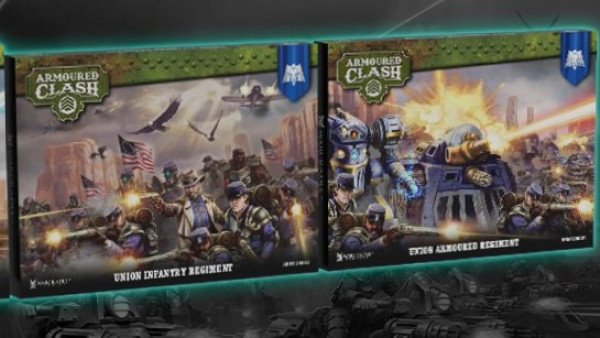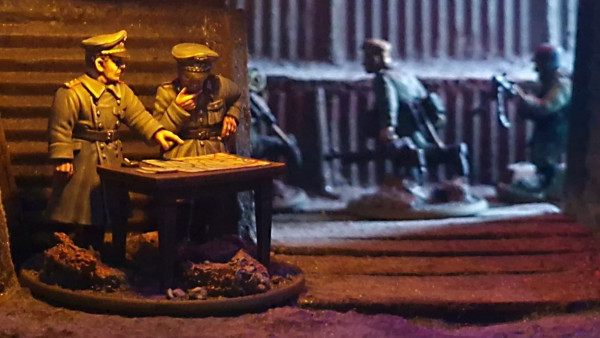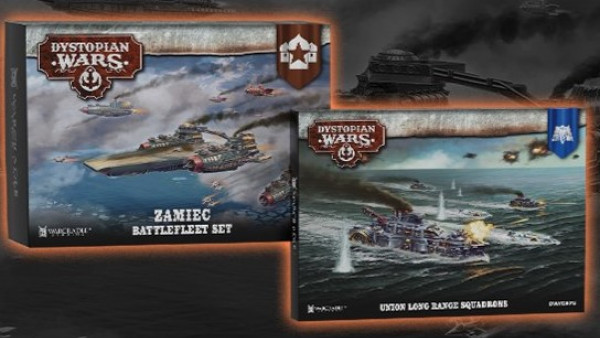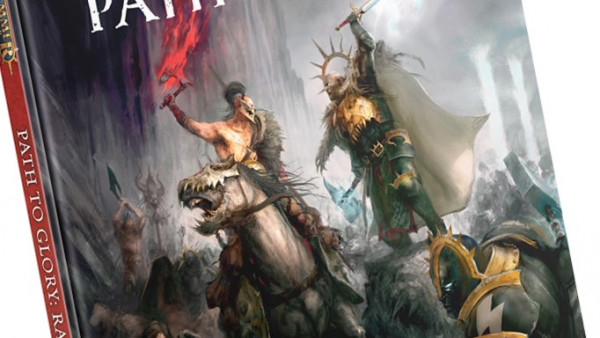Home › Forums › Historical Tabletop Game Discussions › Inaccessibility of Historical Wargaming
This topic contains 120 replies, has 35 voices, and was last updated by ![]() piers 6 years, 5 months ago.
piers 6 years, 5 months ago.
-
AuthorPosts
-
May 28, 2018 at 8:21 am #1190825
There is probably an article in this, but I am too lazy to write one so it’s going to be a forum discussion. The heading for the topic came about through a discussion we had at our club on Saturday after an incident a friend had during the week.
It started because another group in our local area who have been pretty much exclusively playing 40k have recently discovered and started playing Bolt Action. They then mentioned a Facebook post that they had got the Pegasus Bridge model and were enjoying playing with it. A mate of mine and a member of our group ( who play a lot of historical wargames as well as loads of other games) suggested that this model showed up a flaw in BA and that is the compressed range mechanic that prevents you from firing across the length of the Bridge in the game, which in truth did break the believability of BA a bit as the fight for the Bridge in real life involved shooting 40 yardsyacross the river.
My friend suggested that there were other systems out there which do a far better job than BA, such as Chain of Command etc… He then got accused of being a rivet counter. His reaction was have you tried any other systems? to which the reaction was nope because people like you make Historical Wargaming inaccessible. At this point he gave up.
This raised a discussion at our club, about this, is it the Historical wargamers making things inaccessible or the fact that some of the blinkered nature of gamers who are not willing to explore the vast range of options out there that are making things inaccessible to themselves because they are too lazy or don’t have the basic skills to do some simple research, or is it because GW have instilled into them the one system idea i.e. you buy your models and only play that single system.
For me I grew up with GW stuff in the late 1980s and early 1990s I played their games, but then went to University to study History and was introduced to Historical wargames. So I am not a product of the 1970s stuffy old Wargamer brigade. I have my favourite rulesets but it will never stop me trying out other systems. Some I will like for example Chain of Command and I Ain’t Been Shot Mum, others I don’t mind like Bolt Action and Rapid Fire and some I don’t like much like Flames of War.
So be interested in what others think. Are we being harsh on these BA players or where they being blinkered?
May 28, 2018 at 8:52 am #1190860erm… your mate shouldn’t be doing the whole “you’re having bad wrong fun” thing to other ppl especially on a toneless site post, im sure if he’d gone to game with them and then brought it up in the context of hey guys their are some other great really fun systems out there we can play this scenario out with, want to try them out? it would have came across a lot better no doubt
May 28, 2018 at 8:54 am #1190861I think it is a little from column A a little from column B, i.e. “both and” not “either or”.
BA is a perfectly fun game enjoyed by loads of people who also love history. Me for instance! Not everyonwho enjoys history is all that bothered about extensive “realism” in the rules that they play. Having a game that plays well and accomodates the mix of units that I want to model up may in my view be worth more than “realism”. I possess the Chain of Command rules and will get round to tryimg them some day, but haven’t yet as whenever we get around to WW2 game we tend to break out BA because that is the ruleset we know and most of the time it gives us an enjoyable evening’s gaming. I understand the ranges thing and to be honest we just have a laugh about it as we couldn’t care less. It just makes for an amusing absurdity that is quickly passed over.
Being told (or having the perception of being told) that the game you enjoy is inferior to the game someone else enjoys is irritating. Because the simple truth is we all enjoy games for different reasons.
Now I’m not saying your friend was being unreasonable, but even starting that conversation is a risk. And I would say that most of us actually don’t like receiving un-asked-for advice, however well meant.
Far better to engage someone from a different “tribe” on something positive we share – such as complimenting them on the painting or enjoying a sculpt together rather than coming over all condescending.
Now we also all know those mono-system HW fanatics who can’t accept that there are different ways of doing things out there and are dismissive of other companies. But the reality is they are content in their gaming niche and good on them.
Just because we enjoy one aspect of the hobby – such as realism, or even painting our models – doesn’t mean others we are talking to will, or should . The old “you’re doing the hobby wrong” syndrome is all too prevalent . I suspect it is a feature of the type of folk who are attracted to gaming, if the stereotype is true, that communication isn’t necessarily a common strength…
Of course historical gamers are not alone in possessing the trait. All of us in whatever niche we enjoy are prone to it. It just perhaps manifests itself over different issues to realism – as sci-fi/fantasy ard less bound by appearing to adhere to it.
To my mind there is mothing more impenetrable than a group of 40k or AoS fanatics, but that’s just my perspective.
May 28, 2018 at 8:57 am #1190862I think it is a bit of both.
Some people are blind to other systems, because they have invested heavily into their current one.
While some will be fanatical in their believe that theirs is ‘the one to rule them all’ others might make the switch once they discover that in historical games the rules tend to be interchangeable as units aren’t exclusive to specific systems.
The latter is a feature that the non-Historical gamers may not be familliar with due to the fact that companies like GW enforce this in their ‘official’ games and media by marketing/branding the heck out of it.
Heck, it might feel like cheating at first when you discover that you don’t need to buy the “official” brand for a specific game.Then there’s the other side of the coin : the rivet counters.
They are effectively the historical version of the rules lawyer at times, because they can forget that people can have fun without following the exact circumstances/technology to the letter. Your Pegasus bridge discussion is an example.
Yes. Being able to fire across the entire bridge definitely changes the game and brings that scenario closer to reality.
However when you follow that scenario then you’d also have to prevent the Germans from doing anything until the first shots are fired and/or the British fumble their initial stealth advantage. That is a feature that can feel non fun, especially if they’re lucky with their initial round of shooting.Can it be solved ?
Of course … but it will depend on both sides of the equation.
Those new to historical gaming need to learn that there are more options than just the one.
The ‘rivet counters’ need to learn that not everyone is interested in perfect historical accuracy.
Some people don’t mind the fact that they might be playing 40k with the trappings of WW2.It isn’t a matter of being ‘lazy’ when doing research. There is a practical limit to the depth of research, which will be depend on the material and time available.
Remember : real historians can spend decades researching the circumstances of certain events … and we’re playing games.
It’s a matter of being allowed to find your own definition of fun when playing a game.
I’d finish with stating that there are 3 levels of gaming :
- realistic : ‘perfect’ historical accuracy and authenticity
- arcade : 40k with machineguns, authentic gameplay isn’t even the goal …
- semi-realistic : a mix between both extremes where sacrifices are made in the name of sanity, fun and time
Every rule system will fall somewhere between those options.
It’s up to the gamers to discover where they have the most fun.
And as with anything … that means you’re going to have to make sacrifices if you want to play a game at all.May 28, 2018 at 9:27 am #1190910I think the problem with historical gaming is that there is just too much damn history to choose from
As for the gaming side I don’t think any game is truly realistic and in every ruleset something has to give to make the game playable whether this be weapons ranges,C&C or something else.
I am not sure where the accuracy above all attitude came from. If you look at rulesets by Bath, Featherstone or Grant they always wanted to put playability first over complete accuracy.
My thought is let people play what they want to play. If after playing a game of BA on Pegasus Bridge and one of the players feels motivated to pick up a book and read what actually happened then it’s job done
May 28, 2018 at 11:03 am #1191043I knew this was an interesting discussion, and actually reflects some of the things raised in our group on Saturday.
I just want to say though my friend is far from a rivet counter. I think it’s a case of when playing a game he wants to immerse himself in the game. Like we all do I guess, and if there is something that occurs that breaks that immersion then it spoils the game. The Pegasus Bridge issue was one such instance of this. When you can’t do something that logically you should be able to because the rules get in the way it does affect your enjoyment. I for example find the Flames of War/Team Yankee way of deciding on if it’s a front or side armour hit totally ruined the games for me, because it is not logical.
May 28, 2018 at 11:48 am #1191090As mentioned above, people like different games for different reasons. I agree about the immersion thing, and it affects me too, if something is possible in a game that would be either impossible or very unlikely in real life. The issue here, I think, is whether we value a game higher based on how good a simulation it is or how good the mechanics are.
In my experience with regard to tabletop gaming, the games that have solid and fun mechanics are the games that most people will enjoy playing. Bolt Action is very much an example of this. The game got some glaring flaws in regard to what it tries to simulate and the designers did a very poor job in regard to fleshing out the point values for some of the units. But when it comes to the mechanics, they are solid and fun, and that is what make people keep playing it. In many ways I see Bolt Action as a “gateway game” – to use a term used for board games that describes games that are fun enough to get people hooked on gaming. For those who have played 40k, Bolt Action is a gateway game into historical gaming. This means that there is a unique opportunity to ‘convert’ Bolt Action players, who is developing an interest for history, into trying out other historical based games. But one must be clever about it. The chance of conversion is greater if you praise the game you would like to introduce for its merrits instead of criticising the game your buddy is already enjoying.
May 28, 2018 at 12:08 pm #1191104I understand the fact that it may appear that my friend was a bit heavy handed, based on how I wrote this topic, I have not actually seen the facebook discussion so am only going on what I was discussed on Saturday. There were another couple of members of our group that did see the discussion and said the way that the discussion went was completely disproportionate to what my friend wrote. The main point I was trying to get to was is historical gaming inaccessible because it’s perceived as being full of history buffs and guys that are more interested in an exact recreation of a particular battle. In the group we play in we play historically based games but very rarely do we refight any specific battle. We are very much for keeping the rules simple but inline with what can and cannot be achieved. So for example I am currently preparing to a game based on the Great Northern War but it will not be based on any particular battle but we try and use a rules that reflect the type of battle so for example we are using the style of armies that were used by Russia and Sweden and not using the same types of sites that were being used in western europe at the time which were several years ahead in terms of military thinking and to some extent weapons.
May 28, 2018 at 12:17 pm #1191107“You’re doing the hobby wrong.” This is not only a syndrome, it is the greatest imaginable nonsense, it is almost a contradictio in eo ipso. Hobby means having fun, and if I have fun, it is right, mission accomplished.
Doing something you do not like and doing it wrong, how dumb is that? If YOU do YOUR hobby, YOU can´t be wrong.
If historical accurracy is your thing, go for it. If the mere fun is your thing, have it. If you have problems with the range of a weapon, change it. If you find the rules for side/front armour “just not right”, change it. But if you don´t like something, then please behave like commodorerob, just don´t play it any more and let the ones still playing have their fun. Be a gentleman or gentlewoman.
Anything that spoils your gaming experience and the fun has to be avoided, including following rules at all costs, not changing something if you want to. rivet counters and know-it-betters, not being flexible enough to try out something new and, most importantly, ruining and spoiling the fun of others.
If anybody told me I was doing “the hobby” wrong, I´d be furious and feel insulted. Since I´m 6´ something tall that rarely happens 🙂
As for accessability of historical wargaming, this is like a house. Open the door and look around. In the hall there are doors, choose one end enter. You just need to step through. If you like it, cusiosity may lead to other rooms, if you dont like it, go to the house named sci-fi wargaming. But remember, the ding is not only dong, it is your choice where and whether you stay and how many rooms you search.
No one will deny you access or make it difficult, but you.
May 28, 2018 at 1:38 pm #1191212I didn’t mean to pile on your mate. I appreciate it is a third party conversation, and he’s probably a nice guy, and I can quite believe that some folks who were long-term 40k players and who recently took up BA were … not great. Not to stereotype, but there is a mindset I have come across amongst SOME ex-/swing-/40k players and it isn’t great (although I have met, and indeed game with, many who are absolutely wonderful people)
The issue I think though is that anyone even sees the need to “convert” anyone to anything. Playing BA is as valid as playing Chain of Command, or Squad Leader or indeed 40k. Its validity comes from its ability to engage and entertain a large number of people over a long period of time. There is no “superior” hobby here. It may be that Chain of Command is a better way of simulating combat in WWII, but that does not make it a “superior” game objectively, only subjectively and only to those who really care about that kind of thing.
Now some people will develop a love for history and find they start to like more simulationist (although CoC isn’t really simulationist in a bad hyper-detailed way, it just is really well written!) approaches and researching the background, and more power to their elbow. Others will stick with their new game for a long time and be totally satisfied with it, and there is nothing at all wrong with that. They just don’t value the simulation angle as much as the others. And that is not a “worse” or “immature” or “kiddy” (all epithets I have heard used in this context).
Basically in my view, any “historical” gamer (or any other gamer) has a problem and will be perceived as being a douche if they approach another gamer with the idea in their mind that the way someone else enjoys their hobby is in anyway less “mature” or “valid” in any way.
Are historical gamers more prone to it? Possibly in that historical gaming gives an opportunity to attempt to portray reality. However I have met some 40k gamers who totally rivet count and object to fan-made gaming ideas as being non-canon, and I have to admit that in my youth I looked down on LotR gamers who fiddled about with canon and tried to insert their own ideas into Professor Tolkien’s world (even when those fans were employed by GW to work on the game…. !) But I have repented of that attitude, and see it for the elitist, snobby nonsense it really is.
Basically, no-one has any right to criticise, however mildly or by implication, anyone else’s hobby. If historical gamers in any way are perceived to look down their noses at people enjoying less simulationist games than they think are “the best way of portraying history” then they are opening themselves up to being labelled as intolerant. Because there is no absolute standard that says “If you don’t attempt to portray history correctly then you are doing it wrong”!
Imagine the boot was on the other foot. Imagine a (say) Bolt Action player came up to your friend and said: “You are doing the hobby wrong because I just want fun, and spending a load of time researching a historical period is not a fun activity, so if your hobby involves a lot of research then it is a chore, not a hobby so you need to “convert” to a less research-intensive game so you can have more fun!”
It’s nonsense, right? But it is no more nonsense than the idea that I have read into your friend’s supposed comments that appear that he believes that in order to “do historical gaming properly” you have to do your best to simulate reality and that it is somehow my duty to “convert” you onto the “ONE TRUE PATH” of historical gaming whereby you learn to do it “properly”.
The issue is one of tact and consideration. Of course we all believe the way we do hobby ourselves is the best way of doing it, otherwise, we wouldn’t do it that way ourselves, right? But who are we to imply that our knowledge and understanding gives us the right to tell someone else (even if we have been doing it for years and they have only just started) uninvited how they could “do it better”? While we might be the loveliest person alive and really mean no harm by it, just by harbouring that attitude and expressing it implicitly by giving uncalled for advice we are in fact being a complete twat!
Now don’t get me wrong, I enjoy history. In fact, I was “into” history before I was into gaming or fantasy. There is nothing wrong with getting into the detail of history. But there is also nothing wrong with collecting a 1000 point BA army, painting them shocking pink and blitzing your mates on a club night, if that floats your boat. As long as we all go into our games with our opponents knowing what each other expects out of a game, then its all good, and in my view, we should stay the heck out of each other’s hobby space unless invited in.
May 28, 2018 at 1:52 pm #1191234I’m with Limburger here a bit of this and a bit of that. I am OK with Bolt action, Prefered Disposable heroes, hate the TOE of some of the armies in BA so combined the two we have some great games locally. So for newbies we have the ease of 40K WWII and something for the old boys.
May 28, 2018 at 2:17 pm #1191296May 28, 2018 at 3:09 pm #1191387Great discussion buys, and thanks to @commodorerob for bringing it up.
The “inaccessibility” of historical wargaming is indeed an unfortunate perception at which we work hard to disassemble at Beasts of War. Not to “shill” for myself here, but this literally this weekend we had a 45-minute interview on (just as an example) – Top Five Tips for for Gaming in the Great War. Not this battle or that campaign, general so-and-so, such-an-such a date. But really how to help players who may be interested in the Great War and may want to try a game in that setting.
I bring it up because, yes, the inaccessibility of historical wargaming is a very real and very unfortunate perception out there, and unfortunately it’s very true in some ways. The good news is that it doesn’t have to be. But it takes deliberate effort, and will always require such effort, to continue to reduce.
What makes it inaccessible? Sometimes the players, unfortunately. I can freely admit this because I used to be one of “those” gamers who enjoyed historical wargaming to the point where I looked down on other kinds of gaming and even worse, PEOPLE who enjoyed these games. Historical enjoys certain “advantages” in gravitas, reality, perceived respectability, etc, which sometimes … yes … goes to the head of historical wargamers. Not all of us, but some of us.
This, needless to say, is something we have to work against, both in an online community and face-to-face in gaming clubs, etc. Support between historical community members here on the site has always been a little low. I used to go to every historical forum thread and offer at least a word of congratulations or encouragement, until I realized that only about 1% of this ever came back my way to one of my threads or, even worse, between other historical players. New people who venture in from fantasy or sci-fi are sometimes (not always, but often enough) treated a little roughly.
“Hmppf, haven’t your read so-and-so’s works on this-and-that? You mean NOT in the original Hungarian? Well, my young friend, this is a grown-ups table here, kindly have fun with your Star Wars or 40K or Infinity or whatever …”
*patronizing pat on the head, etc.* 😛 😛 😛
Clearly I’m having a little fun here, but everyone here probably knows what I’m talking about, has heard such conversations, been subjected to such conversations, or at least in my regrettable case, even inflicted it on others in years past.
The point is, this is where the perception of the inaccessibility of historical wargaming seems to come from. The games aren’t any harder or more expensive, etc. The inaccessibility is fallacious, but the perception of it is not and represents a real problem which we fortunately have the power, and responsibility, to reduce at every opportunity.
May 28, 2018 at 3:11 pm #1191389Guys I would just like to point out that, this topic was not intended to become a discourse on my friend, he did not say they were doing anything wrong, he just suggested that there was a flaw in Bolt Action rules and that there were alternatives out there which deal with the issue, from what I understand he was not impolite in his approach.
The discusson i wanted to have was about how easy is it to get into Historical wargaming, from my perspective it’ far more accessible than stuff like GW games because of the restricted nature mean you are limited to buying specific products and one rule set, with historical gaming you are not. Therefore I don’t really see how it’ inaccessible just because there are a few rivet counters around. You can make your own pathway into is toric al gaming just like the guys in the early days did by grabbing airfield figures and going to the library and picking up a book by Donald Featherstone.
May 28, 2018 at 3:15 pm #1191390@oriskany exactly what I was trying to put across thanks for doing it in a far more articulate way than I 🙂
-
AuthorPosts
You must be logged in to reply to this topic.

































